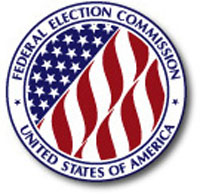
Tax-exempt groups that spent hundreds of millions on the 2012 elections without disclosing their donors have stirred no response from federal regulators but have drawn the ire of state officials who are moving aggressively to restrict them.
From California to Idaho, Montana to Maine and New York, state attorneys general and election officials are fighting in court to force big-spending tax-exempt organizations to comply with their disclosure laws.
State officials and lawmakers have also proposed new disclosure rules, in the form of regulations or legislation, along the lines of the DISCLOSE Act, the campaign finance transparency bill that stalled last year in Congress.
By contrast, the IRS and the Federal Election Commission have largely ignored a long string of complaints by watchdog groups that big-spending nonprofits violated tax and campaign finance laws in the recent election.
In the first presidential election since the Supreme Court’s 2010 Citizens United v. FEC ruling, outside groups spent record sums, many without disclosing their donors.
“It’s clear that because of the failure of the federal government to act in this arena, it’s necessary for the states to become more active,” said Ann Ravel, chairwoman of the California Fair Political Practices Commission.
MORE: States Target Politically Active Nonprofits : Roll Call Influence.